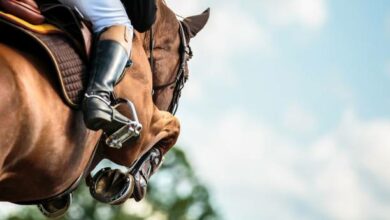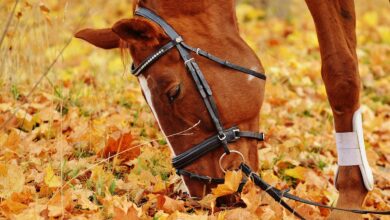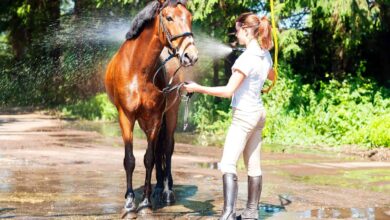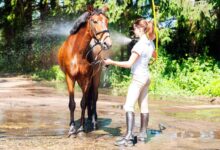By Al Badia Magazine
Horses are among the most powerful athletes in the animal world, and their performance—whether in polo, racing, show jumping, or endurance—depends heavily on the strength of their immune system. A horse with weak immunity becomes vulnerable to infections, respiratory issues, digestive problems, and delayed recovery after training. For owners, trainers, and riders across the Middle East, Europe, and beyond, understanding how to boost and maintain horse immunity is essential for long-term performance and overall wellbeing.
In this comprehensive guide, Al Badia Magazine explores the science behind equine immunity, the daily practices that protect your horse, and natural ways to support their health. From nutrition strategies to stable hygiene and stress management, this article provides everything you need to know to keep your horse thriving.
🌿 Understanding the Horse Immune System
A horse’s immune system functions like a complex army designed to defend the body from viruses, bacteria, parasites, toxins, and environmental stressors. It includes:
- Innate immunity: The first line of defense; skin, mucous membranes, digestive enzymes, and inflammatory responses.
- Adaptive immunity: The long-term memory system that develops antibodies after exposure to diseases or vaccinations.
- Gut immunity (70% of immunity): A healthy digestive tract supports nutrient absorption and fights harmful pathogens.
When this system is well-balanced, the horse maintains strong energy levels, fast recovery rates, and high resistance to infections common in barns and training facilities.
🐴 Nutrition: The Key to a Strong Immune Response
Horses require a balanced diet rich in vitamins, minerals, antioxidants, and high-quality forage. Poor nutrition is one of the most common causes of weak immunity.
1. Essential Vitamins for Immunity
- Vitamin E: A powerful antioxidant that protects muscles and immunity—critical for sport horses.
External reference: Vitamin E for Horses – Kentucky Equine Research - Vitamin C: Helps reduce oxidative stress and support respiratory health, especially in older horses.
- Vitamin A & Beta-Carotene: Important for skin, respiratory, and reproductive health.
2. Immune-Boosting Minerals
- Zinc: Supports wound healing and skin integrity.
- Selenium: Works with Vitamin E to protect cells and enhance immunity.
- Copper: Contributes to tissue repair and enzyme function.
3. Probiotics & Prebiotics
A horse’s gut is home to billions of beneficial microorganisms. When balanced, they protect against harmful bacteria and support digestion.
Internal link suggestion:
👉 Read more in our health section on digestive support for performance horses
4. Omega-3 Fatty Acids
Omega-3s reduce inflammation, improve coat condition, and balance the immune response. Flaxseed, chia seed, and fish oil are excellent natural sources.
🏇 Exercise & Training: Avoid Overstress
While regular training improves strength and stamina, overworking a horse weakens immunity, leading to muscle fatigue, ulcers, and susceptibility to infections.
Best Practices
- Follow a structured training plan with built-in rest days.
- Allow proper cool-down to stabilize heart rate and breathing.
- Monitor signs of exhaustion: sweating, lethargy, irritability, slow recovery.
Horses in high-intensity sports like polo and racing require even greater attention to rest and recovery to maintain optimal immune function.
🧼 Stable Hygiene & Environment
A clean, well-ventilated stable is a cornerstone of strong equine immunity. Dust, ammonia, mold, and poor ventilation can all compromise respiratory health.
Improve stable immunity by ensuring:
- Daily cleaning of stalls
- Low-dust bedding (shavings or pellets)
- Proper air flow without direct drafts
- Clean, fresh water at all times
- Regular disinfection of feeders, water buckets, and tack
External link reference:
Horse Respiratory Health Tips – FEI Veterinary Department
😌 Stress Management: The Hidden Factor in Immunity
Stress is often underestimated in horses. Emotional or physical stress can suppress immune function for days or even weeks.
Common sources of stress:
- Long transportation
- Sudden changes in environment
- Isolation from herd mates
- Noise, overcrowding, or poor handling
- Competition pressure and travel
To reduce stress:
- Keep a consistent routine
- Allow turnout time with other horses
- Introduce new environments slowly
- Use calming supplements only when necessary and approved by veterinarians
💉 Vaccinations & Veterinary Care
Regular vaccinations are essential for building adaptive immunity. Diseases like influenza, tetanus, WNV (West Nile Virus), and strangles are common threats.
Must-do immunization steps:
- Follow vet-directed annual vaccination plans
- Deworm on a rotating schedule
- Perform routine blood tests
- Monitor for early signs of infection (nasal discharge, cough, fever)
Internal link suggestion:
👉 Visit our Veterinary Guidance category for expert tips and seasonal health updates.
🌾 Natural Supplements That Boost Horse Immunity
- Garlic – Supports respiratory function and natural detoxification
- Turmeric (Curcumin) – Anti-inflammatory and antioxidant
- Aloe Vera Juice – Gut-soothing, improves nutrient absorption
- Echinacea – Widely used for immune support during seasonal changes
- Manuka Honey – Natural antibacterial for throat and respiratory comfort
Always consult a veterinarian before introducing new supplements.
🐎 Performance Horses: Special Immunity Needs
Horses involved in:
- Polo
- Endurance
- Racing
- Show jumping
- Dressage
…face intense physical demands. Their immune systems must withstand travel, competition stress, and rapid recovery cycles.
Key recommendations for performance horses:
- Provide electrolytes during hot weather and heavy training
- Use high-quality hay to ensure digestive stability
- Avoid excessive stall confinement
- Regularly check hydration levels (skin pinch test)
- Ensure a balanced diet rich in antioxidants
⭐ Conclusion: A Healthy Horse Is a Happy Athlete
Boosting horse immunity is not a single step—it is a combination of nutrition, management, environment, training balance, and emotional wellbeing. When these factors are aligned, horses perform better, recover faster, and enjoy longer, healthier lives.
At Al Badia Magazine, we remain committed to educating horse owners, riders, trainers, and breeders across the Middle East and the world about proper equine care. A strong immune system is the foundation of a horse’s success, and with the right daily practices, your horse can thrive in any discipline.








